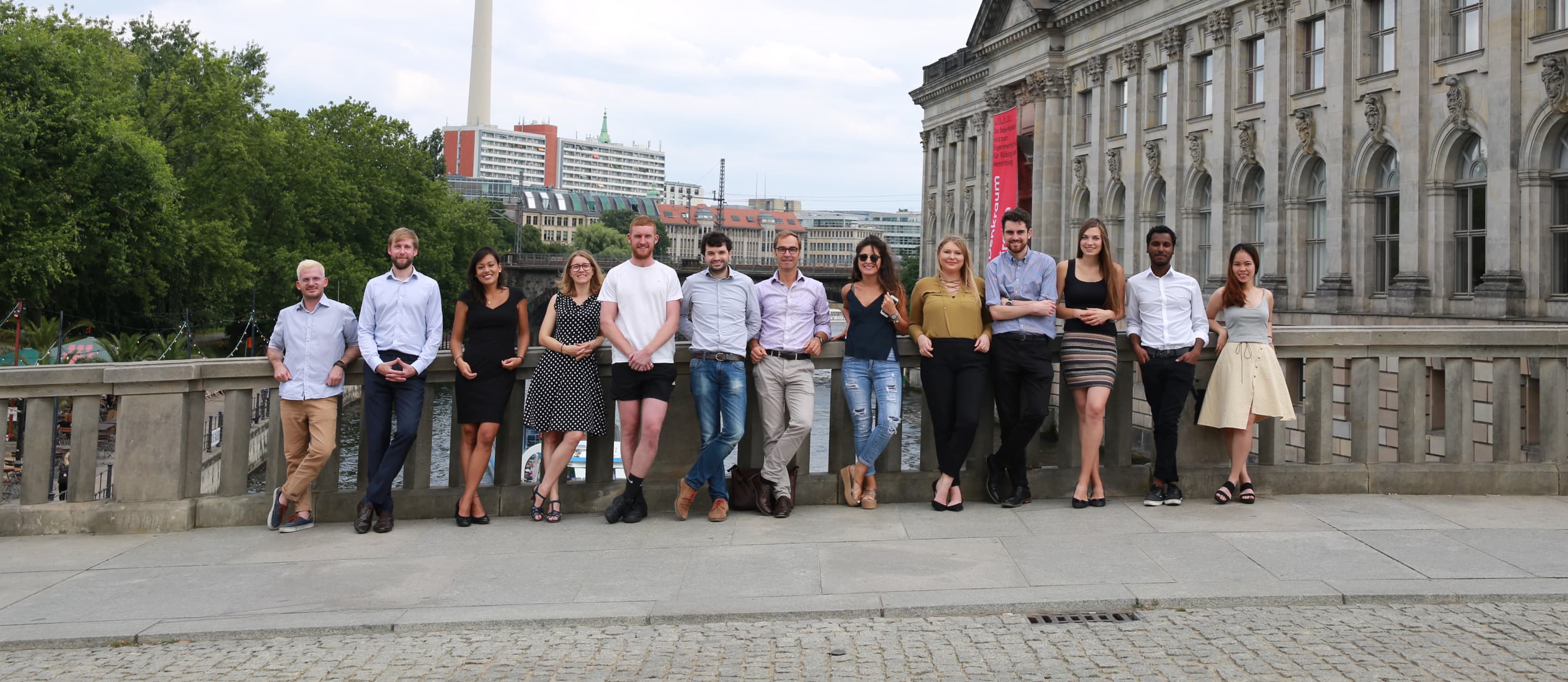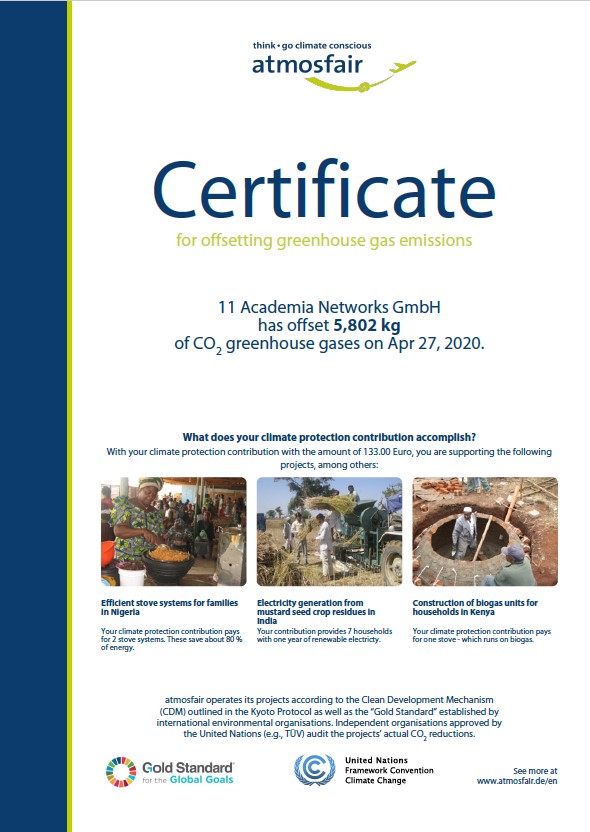Sustainability at 11 Academia Networks

At 11 Academia Networks, our policy is to recognise the impact our company has on the local and global environment, and to take active measures to reduce this impact. Our goal is to reduce negative impacts resulting from our company operations, and to promote sustainability and environmental awareness internally to staff as well as externally to users, customers and suppliers.
We aim to achieve this by:
- Complying with and when possible exceeding requirements of applicable environmental legislation.
- Measuring and analysing our own operational annual carbon footprint.
- Taking active measures to reduce this and offsetting residual footprint through carbon-offsetting schemes, achieving a net footprint of zero carbon emissions.
- Preventing pollution through waste management strategies to promote waste-minimisation, re-use and recycling whenever possible and appropriate.
- Identifying energy inefficiencies and taking measures to reduce these.
- Integrating energy efficiency and environmental impact into procurement decisions, including for new hardware and SAAS suppliers.
- Carrying out a regular Supplier Audit to identify the environmental impact of suppliers, and using this to inform future procurement/renewal decisions.
- Being transparent and willing to engage with regard to our environmental policy through regular and open communication, both internally to staff and externally to customers and suppliers.
- Regularly seeking input and innovation from team-members regarding our environmental practices.
- Positioning the company as a channel for sharing best-practice examples, including among staff, customers and suppliers.
- Annually reviewing our environmental practices, including this statement, and pursuing a policy of continuous improvement.
- Including environmental impact as an agenda item at management and board level.

Sustainable Websites
At 11 Academia Networks we build career and education platforms, including inomics.com, newengineer.com, codeslaw.com and conferencemonkey.org. We have taken steps to reduce the carbon footprint of our websites (GHG Scope 1 emissions) by:
-
Keeping our website code clean and our sites slim. This reduces the energy required to load each of our webpages over the internet.
-
Hosting our websites on green servers. We use AWS datacentres in Ireland which are carbon neutral. Our green hosting credentials are verified by the Green Web Foundation.
-
Measuring the residual footprint caused by usage of our websites and from 2020 onwards offsetting this by donating to carbon-reducing projects via a certified partner.

Sustainable Office
We are reducing the carbon footprint of our office (GHG Scope 2 emissions), by taking steps including:
-
Switching to a green electricity provider (Greenpeace Energy), sourcing electricty from 100% renewables.
-
Avoiding printing, and when printing is necessary, using certified carbon-neutral paper.
-
Measuring our remaining office carbon footprint and offsetting the remaining emissions that our day-to-day operations cause by donating to carbon-reducing projects via a certified partner. For our emissions in 2019 our compensation partner was Atmosfair. The contribution amount is equivalent to providing seven households with renewable electricity in India.

-
Having a whole-team approach to finding ways to improve our office energy usage.
-
Enabling staff to work remotely regularly, reducing the footprint from transport usage.

Sustainable Supply Chain
Like any organisation, we use a variety of tools and services to manage our work, develop our products and advertise our services. Our ultimate aim is to achieve zero net emissions across our supply chain (GHG scope 3 emissions) by:
-
Keeping a record of our service providers and the estimated footprint caused by our usage of their services.
-
Making the "green credentials" of a service provider a key factor in decisions to work with them.
-
Looking for alternatives and ways to reduce our usage of service providers with a significant footprint.
-
From 2020 onwards, by offsetting remaining unavoidable emissions caused by our use of third party services.
-
Engaging with customers and suppliers, sharing best practice examples and seeking a common environmental vision.


